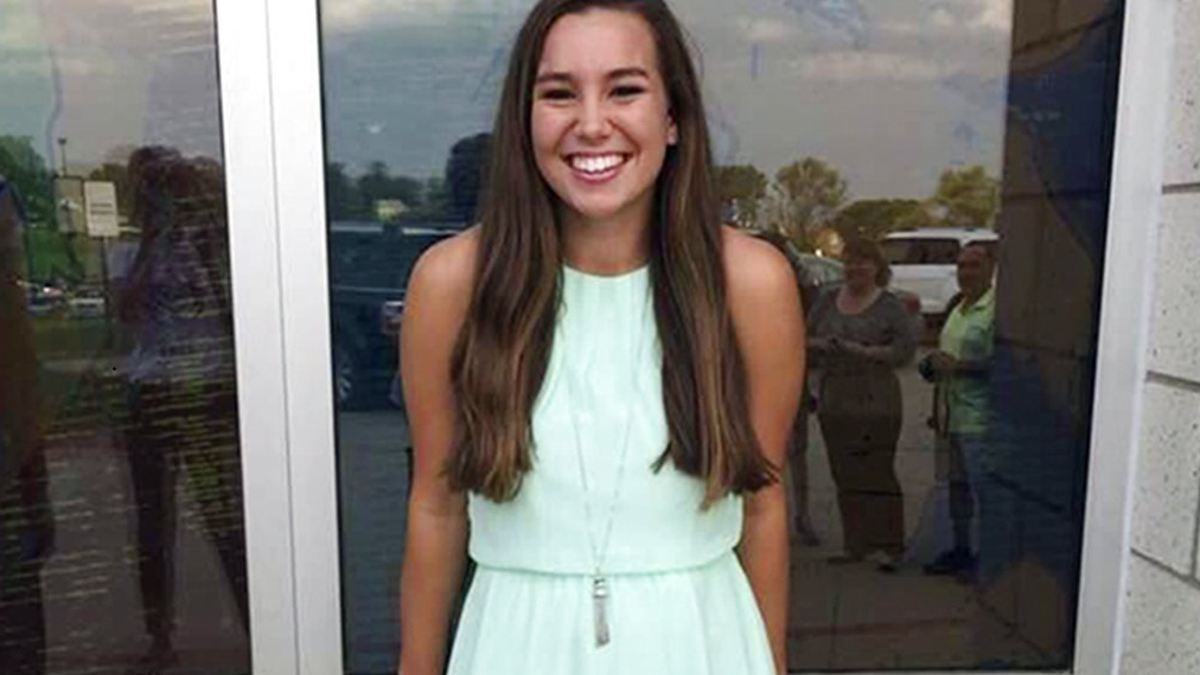
Mollie Tibbetts, a University of Iowa student, was reported missing from her hometown in Brooklyn, Iowa on Thursday, July 19, 2018. (Iowa Department of Criminal Investigation via AP)
FBI and state investigators on Tuesday have taken over the search for a University of Iowa student who has been missing for nearly a week and authorities said it is "leaning more and more toward something happening to her against her will."
Volunteers searching for Mollie Tibbetts, 20, of Brooklyn, Iowa, were called off this week as the FBI and state investigators took over, said Mitch Mortvedt, a spokesman from the Iowa Division of Criminal Investigation.
We're still asking for the public's help ... We'd like to get any information we can. The more eyes and ears we have, the better.
Mortvedt said officials are "leaning more and more toward something happening to her against her will."
Tibbetts was dog-sitting at her boyfriend’s house last Wednesday, KCRG-TV reported. Her boyfriend, Dalton Jack, was reportedly 100 miles away on a construction job.
A neighbor reported seeing her go for a jog that evening. Jack told the station he received a Snapchat photo from her late Wednesday night, after she would have returned to the home from her jog.
When he texted her Thursday morning, he said she did not respond, so he got ahold of her friends and family.
FBI and Iowa investigators are now concentrating on areas around Brooklyn that Tibbetts was known to frequent. The FBI is also studying Tibbett’s online history and cellphone app usage in an effort to pinpoint where she might be, Mortvedt said.
Tibbetts was born in San Francisco and lived in Oakland until she moved to Iowa with her mother when she was in second grade, the Des Moines Register reported. Her father, who lives in Fresno, reportedly flew to Iowa to assist the search.
Dozens of volunteers in Brooklyn have searched fields around Tibbetts’ house as well as Jack’s. They also blanketed the area with missing posters, T-shirts and billboard pleas in an effort to find her.
Tibbetts' aunt, Kim Calderwood of Brooklyn, told the Des Moines Register that Tibbetts' family is frustrated by the lack of progress in the search.
"We're racking our brains, thinking what can we think of to tell the investigators," she said. "It's the worst thing to want to fix something you can't fix."
The Associated Press contributed to this report.

